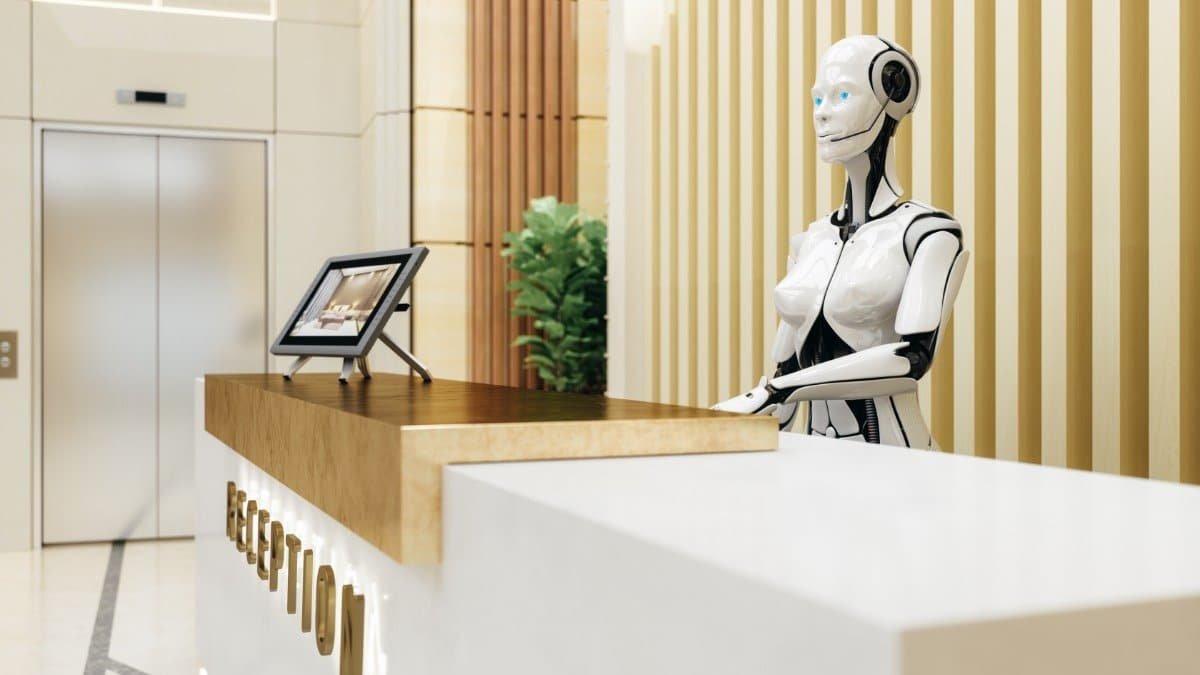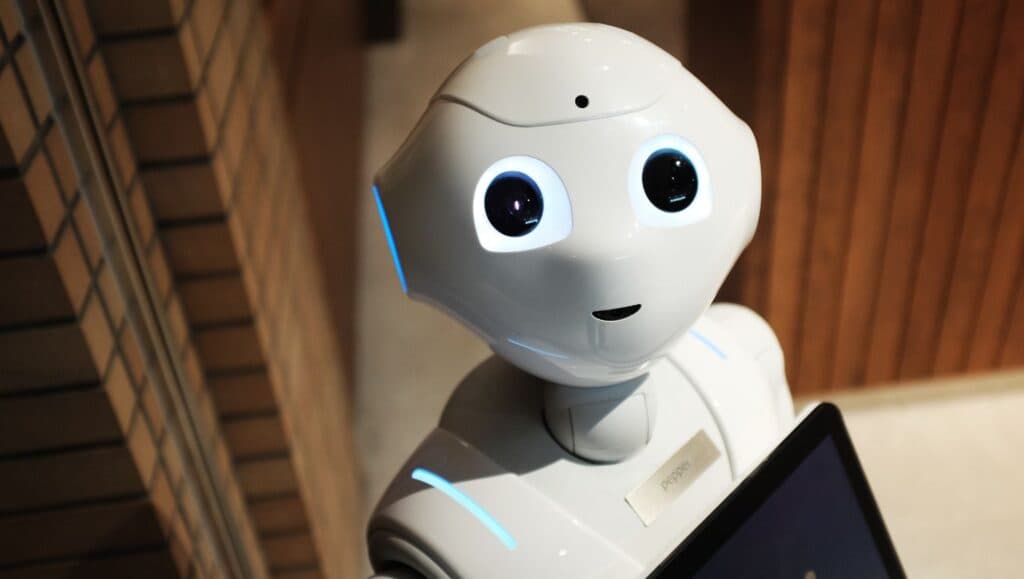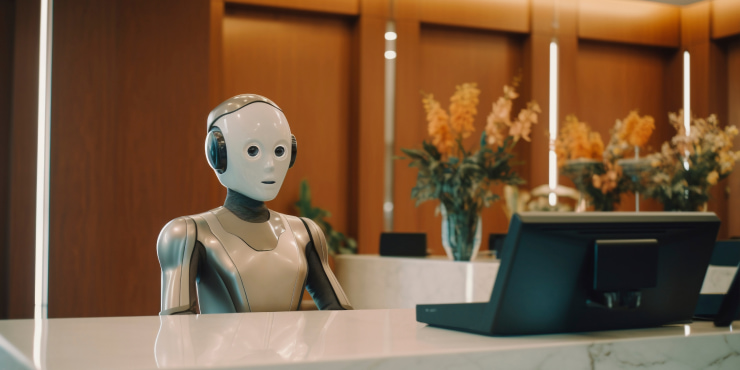The hospitality industry has always been defined by its human touch—the warm greeting at the front desk, the personalized recommendation from a knowledgeable concierge, and the seamless service that makes a guest feel truly at home. However, as technology continues to reshape every sector, a new player has entered the scene: Artificial Intelligence (AI). Far from replacing the human element, AI is being deployed to enhance it, creating a new generation of smart hotels that are more efficient, personalized, and responsive than ever before. This deep dive will explore the myriad ways AI is transforming the hospitality landscape, from streamlining operations behind the scenes to creating a more engaging and frictionless experience for guests. We will examine the key applications of AI, the benefits they offer to both hoteliers and travelers, and the ethical considerations that come with this technological revolution.
AI at the Heart of Operations

For a hotel to run smoothly, an enormous amount of work happens behind the scenes. AI is now an indispensable tool for optimizing these core operations, allowing staff to focus on what they do best: providing exceptional service.
A. Dynamic Pricing and Revenue Management
One of the most critical functions of a hotel is setting the right price for its rooms. In the past, this was a manual process, relying on historical data and a manager’s intuition. Today, AI-powered revenue management systems analyze a vast array of factors in real-time, including competitor pricing, local events, flight bookings, weather forecasts, and even social media sentiment. This allows hotels to dynamically adjust prices to maximize occupancy and revenue, ensuring they are always competitive while never leaving money on the table. This level of data analysis is simply beyond human capability, giving smart hotels a significant edge in the market.
B. Predictive Maintenance and Energy Management
Keeping a hotel in pristine condition is a constant challenge. AI is now being used to predict when equipment might fail, such as an air conditioning unit or an elevator motor. Sensors and historical data feed into an AI model that can alert maintenance staff to potential issues before they become a problem, preventing costly downtime and guest complaints. Similarly, AI-powered energy management systems learn a hotel’s usage patterns to optimize heating, ventilation, and lighting. They can automatically adjust settings in unoccupied rooms or during off-peak hours, leading to significant cost savings and a reduced environmental footprint.
C. Automated Back-Office Processes
From managing payroll and supply chains to handling administrative tasks, the back office of a hotel is a complex web of processes. AI-powered software can automate many of these mundane tasks, freeing up staff to focus on more strategic initiatives. For example, AI can process invoices, track inventory levels, and even screen job applications. This not only increases efficiency but also reduces the potential for human error, ensuring smooth and accurate operations across the board.
AI for a Seamless and Personalized Stay

While AI’s operational benefits are huge for hoteliers, its most visible impact is on the guest experience. By providing a layer of personalized, convenient, and instant service, AI elevates a guest’s stay from good to truly exceptional.
A. AI-Powered Concierge and Chatbots
The modern guest expects information at their fingertips. Instead of calling the front desk, many now prefer to interact with a chatbot or virtual assistant. AI-powered concierges, accessible through a hotel’s app or smart devices in the room, can answer a wide range of questions instantly, from “What time does the pool close?” to “Can you recommend a good local restaurant?” These assistants are available 24/7 and can handle multiple requests simultaneously, reducing the burden on human staff and providing guests with immediate answers.
B. Personalized Room Experiences
AI allows for a level of personalization that was once unimaginable. A smart room can learn a guest’s preferences over time. For example, a returning guest’s room can automatically be set to their preferred temperature, lighting, and even music upon check-in. The in-room AI can also offer personalized recommendations for activities or dining based on the guest’s past behavior and expressed interests, turning a simple stay into a tailor-made experience.
C. Seamless and Frictionless Check-In
Waiting in a long line to check in is a common frustration for travelers. AI is eliminating this pain point. Many smart hotels now offer automated or mobile check-in. Guests can check in via their smartphone, receive a digital key, and head straight to their room, bypassing the front desk entirely. Facial recognition technology is also being tested in some hotels for a completely frictionless and secure check-in process, though privacy concerns remain a key topic of discussion.
D. Voice-Activated In-Room Assistants
Voice assistants like Amazon Alexa or Google Assistant are becoming commonplace in hotel rooms. Guests can use voice commands to control the lights, adjust the thermostat, open the blinds, or even order room service. This hands-free control adds a layer of convenience and modernity to the guest experience, making the room feel more like a smart home than a temporary accommodation.
The Symbiotic Relationship
A common fear is that AI will replace hotel staff, leading to a sterile, impersonal experience. However, the reality is a symbiotic relationship. AI handles the routine, repetitive, and data-intensive tasks, freeing up human staff to focus on high-value, high-touch interactions.The hotel receptionist, no longer bogged down by manual check-ins, can now spend more time greeting guests, engaging in conversation, and offering genuine hospitality. The concierge, with the help of an AI assistant that can instantly find information, can now dedicate more time to crafting truly unique and memorable experiences. AI is a powerful tool that augments human capabilities, allowing staff to be more attentive, empathetic, and present for their guests. The perfect smart hotel strikes a balance between cutting-edge technology and genuine human connection.
Ethical Considerations and the Future Outlook
While the benefits of AI in hospitality are clear, its integration is not without challenges. Privacy and data security are paramount. Guests need to be assured that their personal information and usage data are being handled responsibly. The industry must also address the ethical implications of job displacement and ensure that staff are re-trained and re-skilled to work alongside AI, rather than being replaced by it.
Looking ahead, the future of AI in hospitality is bright and full of potential. We can expect to see more immersive, AI-driven experiences, such as augmented reality tours of a hotel’s facilities or personalized, AI-generated dining recommendations. Robots are already being used for tasks like baggage handling and room delivery in some hotels, and this trend is likely to expand. The smart hotel will continue to evolve, with AI becoming an invisible yet essential partner in creating a seamless, personalized, and truly memorable stay for every guest.
Conclusion
The integration of AI into the hospitality sector is not just a passing trend; it is a fundamental shift in how hotels operate and how guests experience them. AI-powered systems are revolutionizing back-end operations by providing unparalleled efficiency and predictive insights, from dynamic pricing that optimizes revenue to predictive maintenance that prevents disruptions. This allows hotels to run smarter, leaner, and more profitably. Simultaneously, AI is transforming the guest journey itself, offering a new level of convenience and personalization. Frictionless check-ins, instant access to information through chatbots, and hyper-personalized in-room experiences are no longer futuristic concepts but a present-day reality in smart hotels.
The true genius of AI in hospitality, however, lies in its ability to enhance the human element, not diminish it. By automating mundane tasks, AI empowers hotel staff to focus on the core mission of hospitality: creating genuine connections and delivering exceptional service. The receptionist can now be a welcoming host, not just a data entry clerk. The concierge can become a true experience curator, armed with instant data and freed from routine inquiries. As the industry moves forward, the successful hotels will be those that master this delicate balance, using technology to amplify the art of hospitality. The challenges of data privacy and the ethical use of AI must be addressed head-on, but the potential for a more efficient, personalized, and ultimately more human-centric guest experience is immense. AI is not just changing the hotel—it is writing the next chapter in the timeless story of welcoming travelers and making them feel at home.






Discussion about this post